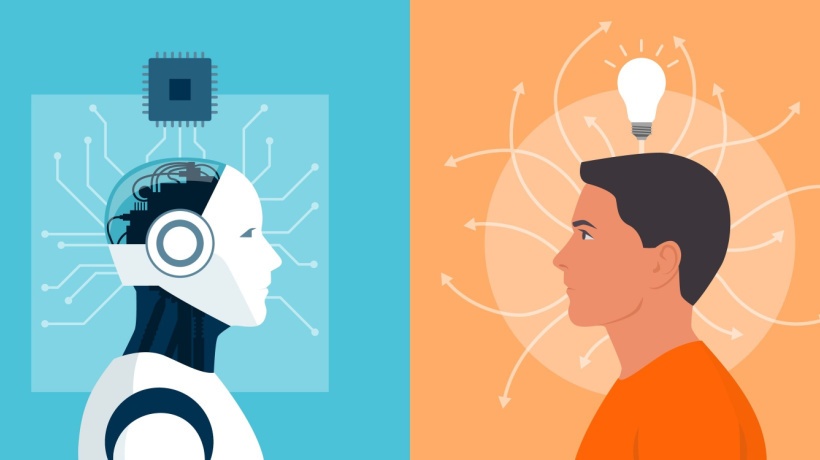Artificial intelligence: benefit or threat?
The impact of artificial intelligence (AI) is a topic of ongoing debate, with diverse perspectives on whether it is more of a benefit or a threat.
Here are some key points to consider:
👍Benefits of AI:
- Automation and Efficiency: ❔AI can automate repetitive and mundane tasks, leading to increased efficiency, productivity, and cost savings in various industries. It can handle large amounts of data and perform complex computations at a speed and accuracy that surpasses human capabilities.
- Improved Decision Making: ❔AI technologies, such as machine learning algorithms, can analyze vast amounts of data to identify patterns, trends, and insights. This can assist in making more informed and data-driven decisions, enhancing outcomes in fields like healthcare, finance, and business.
- Advancements in Healthcare: ❔AI has the potential to revolutionize healthcare by improving diagnostics, drug discovery, and personalized medicine. It can help analyze medical images, predict disease outcomes, and support physicians in diagnosing and treating patients.
- Enhanced Safety and Security: ❔AI systems can be employed for surveillance, threat detection, and monitoring activities in various domains, including public safety and cybersecurity. They can help identify potential risks, detect anomalies, and improve overall security measures.
- Personalized Experiences: ❔AI-powered recommendation systems and personal assistants can provide tailored experiences to individuals, such as personalized content suggestions, product recommendations, and virtual assistants that adapt to users' preferences and behaviors.
- Job Displacement: ❔As AI automation advances, there is concern about the potential displacement of human workers, particularly in tasks that are routine and repetitive. This could lead to significant job losses and socioeconomic challenges if proper measures are not taken to reskill and upskill the workforce.
- Ethical Considerations: ❔AI raises ethical concerns around issues like privacy, bias, and transparency. Machine learning algorithms can inadvertently perpetuate biases present in the data they are trained on, leading to discriminatory outcomes. Ensuring ethical and fair use of AI technologies is crucial to prevent negative consequences.
- Security Risks: ❔AI can be susceptible to vulnerabilities, and if not properly secured, it can be exploited for malicious purposes. Adversarial attacks, data breaches, and privacy violations are potential risks that need to be addressed to ensure the responsible use of AI.
- Lack of Human Judgment and Creativity: ❔AI systems are limited in their ability to demonstrate human-like judgment, intuition, and creativity. They lack the emotional intelligence, empathy, and nuanced decision-making that humans possess, which can be essential in certain contexts.
- Concentration of Power: ❔The development and deployment of AI technologies can be concentrated in the hands of a few powerful entities, potentially leading to unequal access, control, and influence. This concentration of power raises concerns about the potential for misuse or manipulation of AI for individual or corporate gain.
☝It's important to approach AI with a balanced perspective, recognizing its potential benefits while addressing the challenges and ensuring responsible development and deployment. Ethical considerations, regulation, and ongoing research are crucial in shaping the future of AI to maximize its positive impact while mitigating potential risks.

Wow! I've been searching for this info! Thanks a lot!
ВідповістиВидалитиThank you very much, this information helped me a lot!!!
ВідповістиВидалити